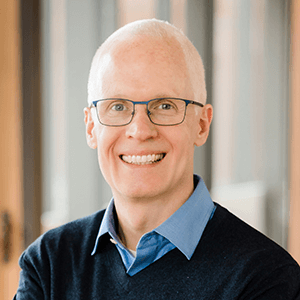As a member of the climate community, we embrace our responsibility to support climate solutions that are equitable, inclusive, and just.
Our journey to further integrate equity and justice into our organization and our work is central to our vision of a planet that is a thriving home for all living beings for generations to come. While we began this initiative in 2018, only last year did we share publicly for the first time our commitments on diversity, equity, inclusion, and justice and make this an organizational priority. We have since continued to step up our efforts and our transparency. As the year comes to a close, here is an update on our progress, how we are evolving our thinking, and how we will continue prioritizing justice and equity in the coming year.
This year, we have had some success putting in place foundational elements to support the changes we want to make in the years to come. Though we’ve not progressed at the pace we intended, we are humbled by that and remain committed to doing more while being honest about the challenges we face along the way.
Building a more inclusive, and diverse organizational culture
This goal reflects our desire to inextricably embed diversity, equity, and inclusion into our organization’s operational and cultural dimensions. It includes our commitments to Enhancing diversity and enacting cultural change, and Further diversifying our Board.
Cultivated a diverse and inclusive organizational culture
We continued to share our race and ethnicity data with Green 2.0, held ongoing DEI training sessions, made improvements to our hiring and onboarding policies and practices aimed at eliminating unconscious bias, and established an internal working group to improve diversity, equity, and inclusion across all facets of our organization. We also significantly increased our learning internally and in collaboration with others, including our Board and funding partners.
Increased the diversity of our Board
This summer, we welcomed the appointments of Dr. Naoko Ishii and Dr. Arunabha Ghosh to our Board. Both exceptional leaders in their fields, Dr. Ishii and Dr. Ghosh, have expanded the international expertise of our Board with their experience working at the intersection of climate, international development, and public policy.
As we look ahead, we are focused on ensuring that everyone at ClimateWorks is doing the necessary individual and collective work to advance diversity, equity, and inclusion as an organization.
Ensuring justice, equity, diversity, and inclusion in our global grantmaking and intelligence
In pursuing our mission to end the climate crisis, we are committed to supporting racially, socially, economically just, and equitable outcomes. This goal reflects our commitments to Broadening our Network of Grantees and Contractors, Strengthening our Global Programs and Services, and Funding the Work.
Joined the transparency portion of the Donors of Color Network’s Climate Funders Justice Pledge
We are pleased to share that we have joined the transparency portion of the Climate Funders Justice Pledge. Led by Donors of Color Network (DOCN), this pledge calls on top climate funders to commit to transparent reporting of their grants and increased funding of BIPOC-led power-building groups.
We will not join the climate grantmaking portion of the Climate Funders Justice Pledge because of the restricted nature of most of the funding we receive. ClimateWorks is a global grantmaking organization. Our grantmaking is guided by strategies across 10 Global Programs, primarily funded by program- or project-specified support, defined in partnership with our funders. While we won’t commit to a specific amount or percentage of funding, we are committed to increasing the amount of funding we provide to climate justice and power-building organizations working toward climate change mitigation, both in the U.S. and internationally, and to working with our funders in this regard.
Committed new funding to climate justice in 2021 and 2022
In 2021, we created a fund of $1.0 million for grants to groups that self-identify as pursuing climate justice and equity. With these funds, we will provide a $500,000 grant to the CLIMA Fund, a $250,000 grant to the Hive Fund for Climate and Gender Justice, and a $250,000 grant to the Fund for Frontline Power (bringing our total support to them up to $400,000 in 2021). All three grants reflect the importance of grassroots climate solutions, support our commitment to increasing our outreach to climate justice organizations and enable us to continue our learning journey through such partnerships. Additionally, our grant to the Fund for Frontline Power demonstrates our support for and solidarity with frontline-led and grassroots-governed funds. In 2022, we will triple the size of this special fund to groups working on climate justice and equity to $3 million.
Challenging our assumptions to advance necessary climate solutions
There is a broad spectrum of climate solutions and even more perspectives about how to keep the planet within a safe range of warming. As we review our programs and sector-specific solutions through a lens of equity and justice, we’re finding opportunities to engage in debate and reassess our thinking. One such area is carbon dioxide removal (CDR), specifically direct air capture (DAC), which has emerged as a strategic complement to slashing emissions. Because DAC removes legacy emissions from the atmosphere, it’s increasingly seen as an essential tool in the climate solution toolbox if we want to keep temperatures from rising above 1.5 degrees Celsius of warming. CDR moreover is the only single approach that can restore the climate to pre-industrial temperatures.
But not everyone shares this view. There are critical challenges with CDR, which we have deliberated on this year as we have listened and learned from others who have pressed us to reevaluate our perspective. We value and respect these opinions. However, our view, informed by the Intergovernmental Panel on Climate Change (IPCC), is that we cannot solve our climate crisis without it. For that reason, we remain committed to supporting research and engagement aimed at the responsible development of DAC. We are also committed to engaging with other organizations to learn from and support their journeys to improve how we do our work collectively.
As we push our equity and justice commitments forward, we are grappling with important questions: What changes can we make to our grantmaking practices to reduce unintended bias and alleviate the burden on resource-constrained grantees? How do we increase the visibility of organizations, particularly those who are smaller, less-resourced, and perhaps not pegged as “climate” organizations but are doing vital climate justice and equity work?
Advancing justice and equity in collaboration with our philanthropic partners
In 2021, we continued to lean into our collaborative DNA by expanding learning opportunities centered on justice and equity in partnership with other funders. In funder forums including the Funders Table, we nurtured conversations that enabled funders (ClimateWorks included) to challenge their own and each others’ attitudes and approaches toward funding at the intersection of climate and justice. We will continue to use our collaborative skillset and broad networks with funders and nonprofits to lift up and facilitate greater access to leaders and organizations traditionally marginalized in the global climate network. Our commitment to Listening, learning, and convening will help us to achieve this goal.
Seeking partners to shine a light on the climate justice funding landscape
This year, we planned to do a funding trends report on climate justice and just transition to shed light on the funding gaps and opportunities for the broader field of climate philanthropy. Through many conversations with climate justice organizations, it became clear that we lacked the necessary expertise and couldn’t move this work forward on our own. We are working through options to move forward in a way that appropriately represents the climate justice funding landscape with the knowledge that it must be directed by leaders working directly on equity and justice issues.
We aim to make significantly more progress in this area over the coming year. Topics we are tackling as an organization to guide us include: How do we create the space to build new partnerships? How do we build trust and shift power?
Building capacity, literacy, and know-how
To achieve the goals outlined above, we must have the right tools and resources in place. This work is an extension of our commitment to Expanding our expertise and partnerships.
Dedicated more resources to support equity and justice work
In 2021, we opened a search for a Justice and Equity Director and deployed two additional full-time staff positions to guide our work in this space. Makeeba Browne is taking on the new role as Associate Director for Justice and Equity, to build on the great work she’s done for the organization on justice and equity this year. In her role as Director of Special Projects, Jessica Brown is now fully dedicating her time to the furtherance of ClimateWorks’ justice and equity commitments. We are also building a cross-departmental team to support the implementation of ClimateWorks’ equity and justice priorities at all levels of the organization.
In addition to ramping up internal capacity, ClimateWorks is engaging a diverse group of esteemed experts to advise us on specific opportunities to incorporate racial, social, and economic justice more deeply into climate solutions and our programmatic strategies. We are thrilled to announce our initial experts, Tasneem Essop, Dr. Kumi Naidoo, and Richard Woo.
We have realized that engaging in climate justice and equity is a newer area for us. As a result, we are taking time to think carefully about the road ahead, build relationships rooted in trust, not efficiency, and think about our intended goals before we start to roll out a plan of action. Additionally, as a global organization, we are reflecting on the right terminology for our work that encompasses justice, equity, diversity, inclusion when our focus is both within the U.S. and global.
The road ahead
In 2022, we will build on our progress to accomplish even more and evolve how we bring our commitment to justice and equity to life. Our commitment to improving our understanding, outreach, and networks to include organizations with a climate justice mission extends to learning how we can be better partners in the work and engage with our donors on the opportunity to increase funding in support of this goal. As we continue to evolve our thinking and approaches, we will listen, learn, act in community with others, and report on our progress.
Read these additional resources for more:

